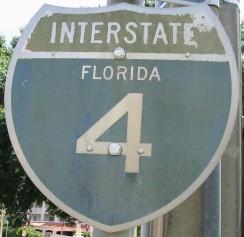To hear the city’s technology leaders tell it, Philadelphia has a vibrant tech scene whose biggest problem is a lack of visibility. And to be sure, the region is home to a respectable amount of tech activity. In 2014, Pennsylvania ranked No. 7 on the list of states with highest IT employment, according to the 2015 "Cyberstates" report from CompTIA and TechAmerica. In Philadelphia, the tech industry is growing, albeit more slowly than in many other markets. A report by the Los Angeles-based CBRE Group suggested that, between 2010 and 2013, the metropolitan area’s tech workforce grew 13.3 percent, compared to 42 percent for nearby Baltimore and 20.8 percent for Silicon Valley. Check out the latest Philadelphia tech jobs. CBRE also said that Philly’s tech workforce is the most gender-diverse in the country, with 31 percent of its positions held by women. In terms of pay, IT salaries averaged $90,571 in 2014, according to the Dice Salary Survey, a 1.7 percent slip from 2013.
‘Strong and Growing’
Philadelphia and its neighbors are home to an array of tech-centric employers from a number of industries, including Comcast, SAP, Unisys and Independence Blue Cross. An extensive network of healthcare providers and pharmaceutical companies has driven the growth of digital health ventures, with a number of enterprise solutions providers located in the region, as well. “Philadelphia has a very strong and growing tech scene,” said Lysa Dahlin, senior vice president of human resources for Comcast. She foresees the tech community growing along the lines of Boston or Denver, spurred by the presence of a number of universities and an influx of Millennials attracted to the city’s quality of life. It’s a sentiment echoed by Laurie Actman, chief operating officer at the University of Pennsylvania’s Penn Center for Innovation. “We’ve seen a huge amount of growth in the last five years,” she said. “There’s an active community of entrepreneurs and startups in the city, a nice network of mentoring groups and co-working spaces. You’re seeing Philadelphia starting to emerge as a tech center.” Millennials are a key to the equation. There are 101 colleges and universities in the greater Philadelphia area, according to the business group Select Greater Philadelphia, and STEM fields are among the most active areas of study. The city itself is working to attract new graduates as residents, seeing them as fuel for maintaining growth and building up the energy of its downtown. Millennials prefer to live in cities, Actman noted, and Philadelphia’s downtown is the second most populous in the U.S. “There’s a lot of young tech talent in the city, and the energy and vibrancy they drive is pretty significant,” said Dean Miller, president and CEO of the Greater Philadelphia Alliance for Capital and Technologies. “It you’re starting a local tech company today, you’re going to start it in the city.” In addition, Miller noted, established suburban IT firms are opening city offices to tap into this younger talent pool.
Building Talent Pipelines
Employers in the region face the same challenges in hiring IT workers as companies elsewhere, especially when it comes to finding developers, security experts, cloud specialists, and professionals with data and analytics skills. To address that, many companies are working with the area’s colleges to develop pipelines of talent, which they hope will pay off for the long term. SAP, for example, has created formal relationships with Drexel, Villanova, West Chester University and the University of Pennsylvania, said Jewell Parkinson, the company’s head of HR in North America. “Cloud and analytics skills are hard to find,” she said. “That’s one reason to get those individuals in early, to bring people in with the ability to learn.” Comcast, too, works closely with local schools to identify and nurture talent. This summer, the company will employ 150 interns and co-op participants in technology positions.
Startups Gather Steam
The city also has its share of startup activity, though not at the level of Boston, New York or San Francisco. Among the companies gaining traction are MilkCrate, a “sustainable, local living” app; Curalate, a platform that helps companies market through visual social networks such as Pinterest and Instagram; and Boxter, which provides a suite of online sales and marketing apps. While Miller suggests that funding activity is rising, he sees a need for more seed capital and angel investor activity. Although venture investment in the area dropped during the first quarter of 2015, according to the "MoneyTree" report from PwC and the National Venture Capital Association, Miller believes the overall trajectory is “good.” Indeed, between the first quarter of 2010 and the same period this year, venture funding in the metro area rose from $87.5 million to $134 million. “Some people will always want to go to New York, but Philadelphia’s becoming more competitive,” Actman said. “It’s smaller, and easier to plug into. It’s absolutely a good place to be in tech.”



